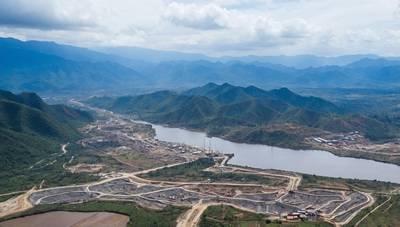 07 September 2017, Harare – Plans to build eight solar power stations, each of around 75 megawatts, MW, in Zimbabwe make a lot of sense considering the climate and the shortage of electrical generating capacity. The price of solar energy has been falling sharply in recent years and, with a cost of US$1,6 billion, the extra 600MW will have a capital cost around US$2,7 million a megawatt, with trivial generating costs, just those for maintenance.
07 September 2017, Harare – Plans to build eight solar power stations, each of around 75 megawatts, MW, in Zimbabwe make a lot of sense considering the climate and the shortage of electrical generating capacity. The price of solar energy has been falling sharply in recent years and, with a cost of US$1,6 billion, the extra 600MW will have a capital cost around US$2,7 million a megawatt, with trivial generating costs, just those for maintenance.
This compares very well with hydro power, another zero-fuel generating type but one with highish capital costs to get started.
To avoid huge tariffs for those using the new power stations, it is necessary that they feed the national grid. Most grids are supplied by a mix of power stations.
For example, in Zimbabwe, Zesa mixes Kariba power, which is very cheap now that the dam wall and other civil works are fully paid for, with more expensive Hwange thermal power and imported hydro-power, mostly now from Cabora Basa.
Regulators, once they see how a mix is made up and the cost of each component, are usually able to calculate a mixed tariff that might well charge users less than the generating costs on the newest power stations.
This prevents a lot of unfairness but does ensure the utility covers its costs and has a bit left over for investment.
Then there is a another very good reason to put the solar stations on the national grid, the fact that the sun does not shine at night when there is the highest domestic demand.
Storage can be very expensive, but Zimbabwe has built in cheap storage, the Kariba South Power station which is fortunately coming up for expansion, even though the country is using its entire Kariba “water ration”.
The reason why Zesa wants to expand Kariba South is not to generate more energy, there is simply not enough extra water to do that, but to give the utility flexibility of when it can generate.
At present it can run the 750MW station flat out 24 hours a day; but if it had 1000MW installed it could increase output above the 750MW for some hours, so long as it decreased from that mean level at other times.
With a huge block of solar power coming on stream it would make sense to make the expansion larger.
Then during the day Kariba South could be cut down to very modest output and as the sun set use the water it had saved during the day to turn a lot of extra turbines at night.
Some countries have even had to make artificial hydro-schemes to get storage, building reservoirs at the top and bottom of a mountain and pumping water up at night and then let it run down through a generator during the day.
Zimbabwe already has a large hydro station with a huge reservoir to do this.
The final breakthrough achieved by the solar scheme is that is amounts to the first significant private investment and private ownership of generating capacity in Zimbabwe.
All other major power stations are owned by Zesa. These will be the first owned by an investor.
The legal changes allowing this were made years ago, although never really acted on, and the regulating authority already has the power to set a fair tariff for Zesa to pay a non-Zesa power station.
– The Herald



